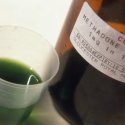How Inpatient Alcohol Treatment Centers Treat Alcoholism
In 2006, excess alcohol use accounted for an estimated 80,000 deaths making alcoholism the third leading lifestyle-related cause of death in the United States, according to the Centers for Disease Control and Prevention. For each of these deaths, researchers estimate an average of 30 years of potential life lost per death due to excess alcohol consumption.
Making the decision to get help for an alcohol addiction may be tough, but ultimately becomes the very best decision a person can make. Inpatient alcohol treatment centers can help a person through this process and provide needed life skills that make an alcohol-free lifestyle possible.
Deciding to Quit Drinking

Getting help from an inpatient alcohol treatment center can set you free from your alcohol addiction.
While inpatient alcohol treatment centers can provide needed care and support, making a firm commitment to change is a necessary first step towards a successful recovery process. The good news is alcoholism can be treated. With the wide selection of treatment programs available, all a person has to do is take that first step.
Anyone who’s been drinking for a number of years will no doubt have to deal with the withdrawal symptoms that come once a person stops drinking. Some of the symptoms a person may experience include:
- Hallucinations
- Convulsions
- Confusion
- Tremors
- Fatigue
- Aches and pains
Many inpatient alcohol treatment centers offer detoxification programs to help people over this first hurdle. Depending on the severity of the addiction, detox programs can administer medication treatments to help ease the discomfort of withdrawal symptoms. On average, the detoxification process takes anywhere from three to seven days. From that point, inpatient alcohol treatment centers help a person deal with the psychological aspects of addiction.
Benefits of Inpatient Treatment
Inpatient alcohol treatment centers provide a closed environment in which a person can focus on the changes he or she needs to make to remain sober. As alcohol has become a built-in feature of everyday life, from parties, to restaurants to small social gatherings, anyone trying to quit drinking on their own faces constant temptation at every turn. Unlike the drug addict who must seek out a drug source, alcohol is readily available to someone battling alcoholism.
The intensive treatment environment found in inpatient alcohol treatment centers eliminates these challenges and gives a person a better chance at recovery. Inpatient alcohol treatment centers also provide around-the-clock care from trained professionals who understand the challenges people face at this point in their lives.
Counseling
Treating the physical component of an addiction is only half the battle. Someone who drinks for years on end has also developed a psychological dependence on alcohol. For this reason, therapy and support group work are integral parts of an inpatient alcohol treatment center program. Individuals engage in intensive therapy work centered on identifying and replacing destructive thinking and behavior patterns with healthy coping and problem-solving skills.
Support group work involves sharing experiences and solutions with people who face the same problems and challenges. Most, if not all inpatient alcohol treatment centers also use a 12-step program approach or Alcoholics Anonymous to give participants a means for finding long-term support throughout the recovery process.
Resources:
Centers for Disease Control & Prevention
http://www.cdc.gov/alcohol/fact-sheets/alcohol-use.htm
